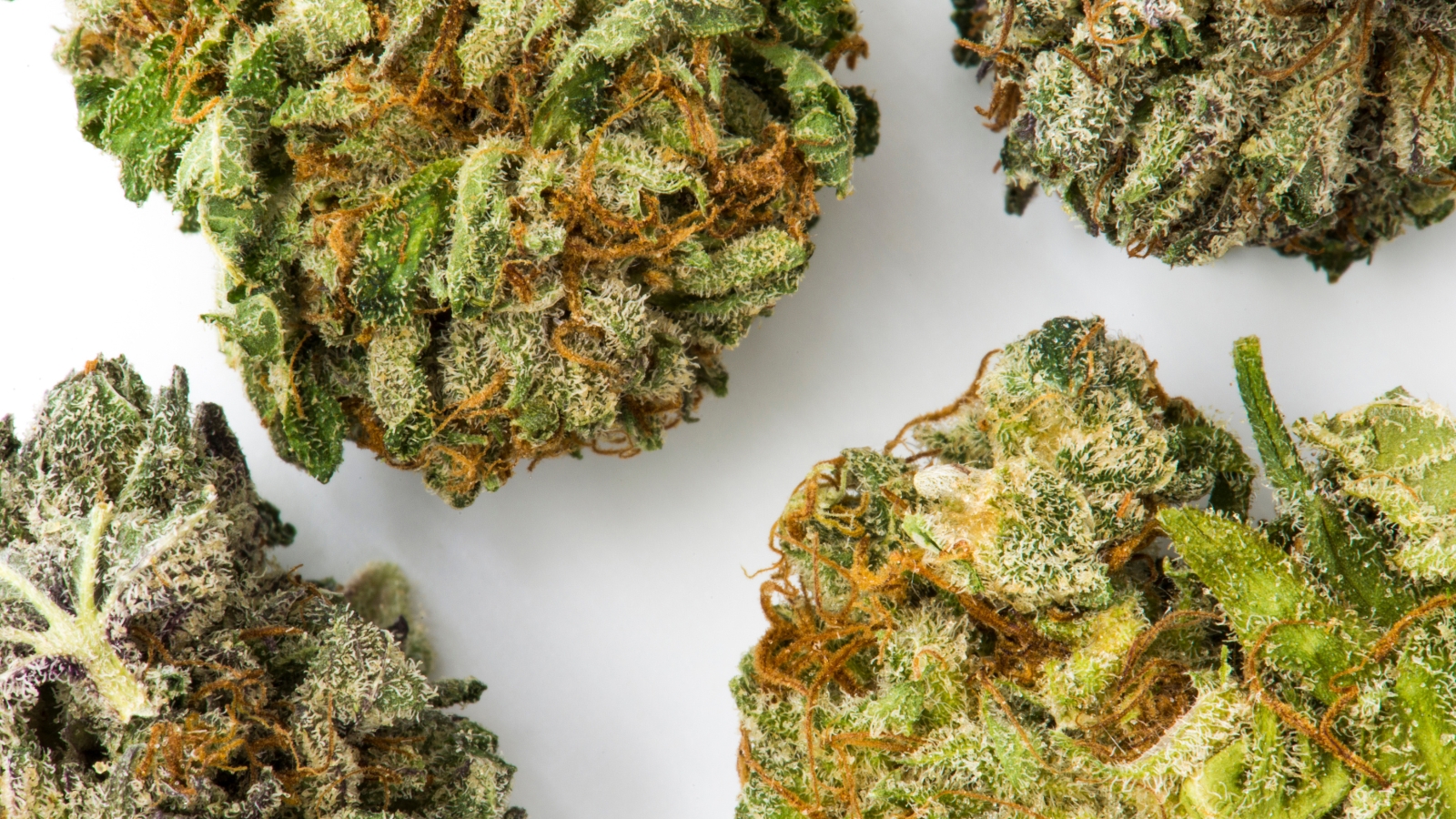Get ready to embark on a journey through the world of Delta-10 THC. As you traverse this kaleidoscopic landscape, you’ll discover the effects and benefits of this enigmatic compound, its role in the endocannabinoid system, and how it compares to its other cannabinoid siblings.
So, buckle up, and let’s dive into the swirling vortex of Delta-10 THC!
Delta-10 THC: Effects and Benefits
Delta-10 THC has various potential effects and benefits, largely due to its interaction with the body’s endocannabinoid system (ECS). We’ll examine its role within the ECS and delve into recent research substantiating the possible benefits of Delta-10 THC.

D10 and the Endocannabinoid System
The ECS is a complex network of receptors, and signaling molecules found throughout our bodies. It plays a vital role in maintaining homeostasis – the delicate balance of our physiological functions. Delta-10 THC interacts with the ECS, influencing the release and uptake of neurotransmitters.
One noteworthy aspect of this interaction is the ‘entourage effect.’ This refers to the phenomenon where multiple compounds in cannabis, like Delta-10 THC and other cannabinoids, work together synergistically to produce a combined effect greater than the sum of their individual effects. Thus, Delta-10 THC may offer a unique benefit profile when used with other cannabinoids.
D10 Research
The research surrounding Delta-10 THC, while not exhaustive, suggests potential benefits in several areas:
Pain Relief: Some studies suggest cannabinoids like Delta-10 THC may help alleviate chronic pain by modulating pain signaling pathways in the ECS.
Anxiety Relief: Preliminary research indicates that Delta-10 THC may have calming effects, potentially helping to reduce anxiety and promote a sense of calm.
While scientific research continues to delve into the properties of Delta-10 THC, anecdotal evidence reports various effects. Some users describe a sense of clear-headedness, improved mood, and enhanced creativity.
Others note the potential for increased focus and energy. However, experiences can vary widely, and more research is needed to fully understand the range of effects and benefits associated with Delta-10 THC.
The Role of Terpenes
Terpenes are aromatic compounds that give cannabis its distinct aroma and flavor. Like a psychedelic light show at a concert, terpenes contribute to the overall sensory experience of Delta-10 THC. Beyond their sensory appeal, terpenes also offer various therapeutic effects, such as anti-inflammatory, anti-anxiety, and pain-relieving properties.
When combined with Delta-10 THC, terpenes can enhance the overall effectiveness of the cannabinoid. For example, myrcene, a terpene commonly found in cannabis, can enhance relaxation and sedation, while limonene is known for its mood-enhancing and stress-relieving properties. By working together, terpenes and cannabinoids create a more balanced and powerful experience.
Maximizing the Entourage Effect with Delta-10 THC
When seeking the benefits of the entourage effect, opt for full-spectrum or broad-spectrum products: These types of extraction offer the full array of benefits from various cannabinoids and terpenes.
You can also experiment with different cannabis strains with unique combinations of cannabinoids and terpenes to find the one that works best for your desired effects. In addition, by mixing Delta-10 THC with other cannabinoids, such as CBD or CBG, you can create a custom blend that enhances the entourage effect.
How Delta-10 THC is Made
As we delve into the mystical realm of Delta-10 THC creation, it’s essential to understand that the process is intricate and requires precise techniques to ensure the purity and potency of the final product. Like an alchemist turning base metals into gold, Delta-10 THC is transformed through several stages before it reaches its final, consumable form.

Starting With the Source: Hemp and Cannabis Plants
The journey of Delta-10 THC begins with its source: hemp and cannabis plants. Both plants contain trace amounts of Delta-10 THC, but the compound is typically found in such low concentrations that it’s not feasible to extract it directly. Instead, manufacturers use innovative methods to increase the levels of Delta-10 THC during the extraction process.
The Conversion Process: Creating Delta-10 From Other Cannabinoids
Delta-10 THC’s transformation starts with the conversion of other cannabinoids. Manufacturers often use cannabidiol (CBD) as the starting material, converting it into Delta-9 THC and then into Delta-10 THC through a series of chemical reactions. These reactions require the use of catalysts, such as acids or UV light, to facilitate the conversion process.
Another method involves converting Delta-8 THC into Delta-10 THC. This process is more straightforward, as Delta-8 and Delta-10 are structurally similar, but it still requires the use of specific catalysts and precise conditions to ensure a successful conversion.
The transformation of CBD into Delta-8 and Delta-10 THC typically involves a series of chemical reactions with acids as catalysts. UV light can also be used to catalyze a rearrangement of Delta-9 THC to other delta forms, such as Delta-8 or Delta-10 THC. This process is known as isomerization.
Converting Delta-8 THC to Delta-10 THC, due to their structural similarity, can be a more straightforward process. However, it still requires careful management of reaction conditions and the use of catalysts.
The Importance of Quality Control and Testing
In the creation process of Delta-10 THC, quality control and testing are critical to ensuring that the final product is pure, potent, and free of contaminants. Manufacturers must adhere to strict guidelines and perform thorough testing throughout the process to verify that their Delta-10 THC products meet the necessary standards.
Third-party lab testing is essential to this process, as it provides an unbiased assessment of the product’s quality, potency, and purity. By obtaining a Certificate of Analysis (COA) from an accredited lab, manufacturers can assure consumers that their Delta-10 THC products are safe and effective.
Delta-10 THC Products
As we explore the ever-expanding Delta-10 THC universe, you’ll find an array of products, like stars in a galaxy, each offering unique ways to experience this captivating cannabinoid.
Types of Delta-10 THC products include:
- Vape cartridges
- Disposables
- Tinctures
- Gummies
- Pre-Rolls
From vaping to ingesting, there are numerous ways to incorporate Delta-10 THC into your life. Choose the method that best aligns with your personal preferences and desired effects.
The Delta-10 THC landscape requires mindfulness and caution. Start with a low dose, and gradually increase it to find the sweet spot that creates the perfect mind-expanding experience without overdoing it.
Is Delta-10 THC Legal?
The Delta-10 THC legal odyssey is like the plot of a dystopian sci-fi novel, with changing regulations and murky guidelines. While it’s derived from hemp and federally legal under the 2018 Farm Bill, individual states have their own rules, so be sure to check your local laws.
As the Delta-10 THC saga unfolds, we can expect to see a growing market presence, with new products and innovations on the horizon.
The Delta-10 THC realm is still largely uncharted, with vast possibilities for exploration and discovery. As cannabis research continues, we’ll likely uncover even more about this fascinating cannabinoid’s effects and benefits.

Delta-10 THC vs. Other Cannabinoids
So, how does Delta-10 compare to other cannabinoids?
Delta-10 THC vs. Delta-8 THC
If Delta-10 THC is the Jimi Hendrix, Delta-8 THC is the mellow Bob Dylan. Both offer unique experiences, with Delta-10 being more energizing and uplifting, while Delta-8 is known for its calming, soothing effects.
Delta-10 THC vs. CBD
While Delta-10 THC takes you on a mind-bending journey, CBD is like a warm hug from a friend. CBD offers numerous therapeutic benefits without the psychoactive effects, making it an excellent choice for those seeking a more grounded experience.
Delta-10 THC vs. Delta-9 THC
If Delta-10 THC is the quirky, energetic cousin, Delta-9 THC is the well-known, potent family member. Delta-9 is the primary psychoactive component in cannabis, and while both produce euphoric effects, Delta-10’s high is generally considered milder and more focused.
Side Effects and Risks of Delta-10 THC
While Delta-10 THC offers a captivating cosmic journey filled with potential benefits, it’s crucial to be aware of the potential side effects and risks associated with its use.
- Dry mouth: Delta-10 THC may cause a decrease in saliva production, leading to a dry or cottony sensation in the mouth.
- Red eyes: The use of Delta-10 THC can lead to bloodshot or red eyes, which is a common response to the dilation of blood vessels in the eye.
- Increased heart rate: Some users may experience an increased heart rate or palpitations after consuming Delta-10 THC.
- Dizziness: A sense of dizziness or lightheadedness may occur, particularly when standing up quickly or changing positions.
- Fatigue: Delta-10 THC may cause feelings of drowsiness or fatigue in some users, particularly at higher doses or when combined with other sedating substances.
As with any mind-expanding voyage, navigating the realm of Delta-10 THC requires caution and understanding to ensure a safe and enjoyable experience.
Wrap Up
As our journey through the Delta-10 THC universe comes to an end, we hope this cosmic exploration has expanded your mind and provided a greater understanding of this enigmatic cannabinoid. If you’re ready to blast off and experience Delta-10 THC for yourself, remember to be mindful of your local laws, seek high-quality products, and consult a healthcare professional if necessary. And, as always, feel free to drop comments below – we’d love to hear about your own Delta-10 THC experiences and insights!











